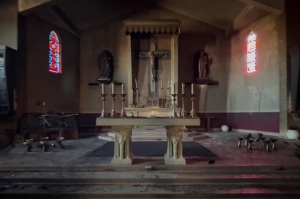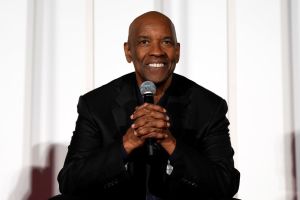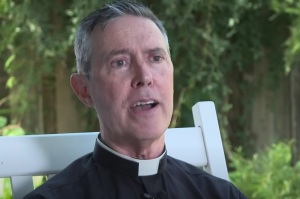X-Files: I Want to Believe
3 Stars - Challenging
The cinematic reunion of Fox Mulder (David Duchovny) and Dana Scully (Gillian Anderson) takes The X-Files in an unexpected direction. As a television science fiction series, the expectation that this cinematic episode will continue the series? exploration into alien abduction and government cover-up is pleasantly turned in the direction of exploring religious faith and belief issues. This shift dramatically changes the meaning of the subtitle of the film ("I want to believe") from wanting to believe there are alien abductions to wanting to believe that God does interact with and care for people. Unlike the latest Indiana Jones film (Kingdom of the Crystal Skull) which takes the usual Indy storyline about religious beliefs and artifacts and shifts it into a tale about alien creatures, the "X-Files: I Want To Believe" film shifts the storyline in the opposite direction from the usual fare of alien interactions and draws our attention to God?s interaction with humanity.
The genius of The X-Files has always been the joining of the scientific mind of Scully with the mystical mind of Mulder. This speaks to current western culture as it reflects the "enlightened mysticism" that is replacing the modern and postmodern worldviews. Taking the mysticism of the Middle Ages and joining it with the enlightenment of the modern age, the weaknesses of each are mediated by the strengths of the other as they meld into a synergistic union. This is seen in the interaction of Scully and Mulder as they work on solving the complex issues of criminal cases as well as their private lives. That this union is not an easy one is reflected by the difficulties evident in both their professional partnership as well as their personal lives.
In this film directed by Chris Carter and written by Carter and Spotnitz, both of whom directed and wrote many of the television episodes of The X-Files, Scully and Mulder are no longer part of the FBI. But when a disgraced pedophilic priest starts having visions of a missing FBI agent, ASAC (Assistant Special Agent in Charge) Dakota Whitney (Amanda Peet) seeks out Mulder's assistance and comes to Scully to locate him. Not knowing whether to believe or not believe the visions of the priest, Whitney is overwhelmed when he leads them through a field of snow to the exact location where a severed arm is found.
Though we won't spoil the tale by explaining it further, the dynamics of Whitney and her fellow agent Mosley Drummy (Xzibit) mirror the struggles between Mulder and Scully as they face situations that cannot be explained by either science or mystical visions alone. All must learn to bring both ways of knowing together so that the truth may be discovered.
Many today are putting their faith in religion and rejecting science, or putting their faith in science and rejecting religion. That this is like cutting off one of your arms, or even dissecting your head from your heart is an obvious metaphor played out in this film. That our future is found in joining both heart and mind, reason and faith, science and religion to address all aspects of life is a message that this new X-Files episode graphically presents. However, we warn that this is not a film for children or the squeamish.
Discussion:
1. Do you believe that God would speak through a disgraced pedophilic priest like Fr. Joseph Crissman (Billy Connolly)? Why or why not? Would this help or hurt your ability to believe?
2. The darkness that invades Mulder's and Scully's lives comes not only from the criminal cases they must try to solve, but also from the suffering of innocent people victimized by disease. How do you deal with the darkness in your own life? Where do you turn for light and enlightenment? In what belief system do you put your hope?
3. Have you ever experienced a "word from God" or have you ever "seen a vision"? Did that experience change your life? If not, why not? And if it did, how did it impact you?



























